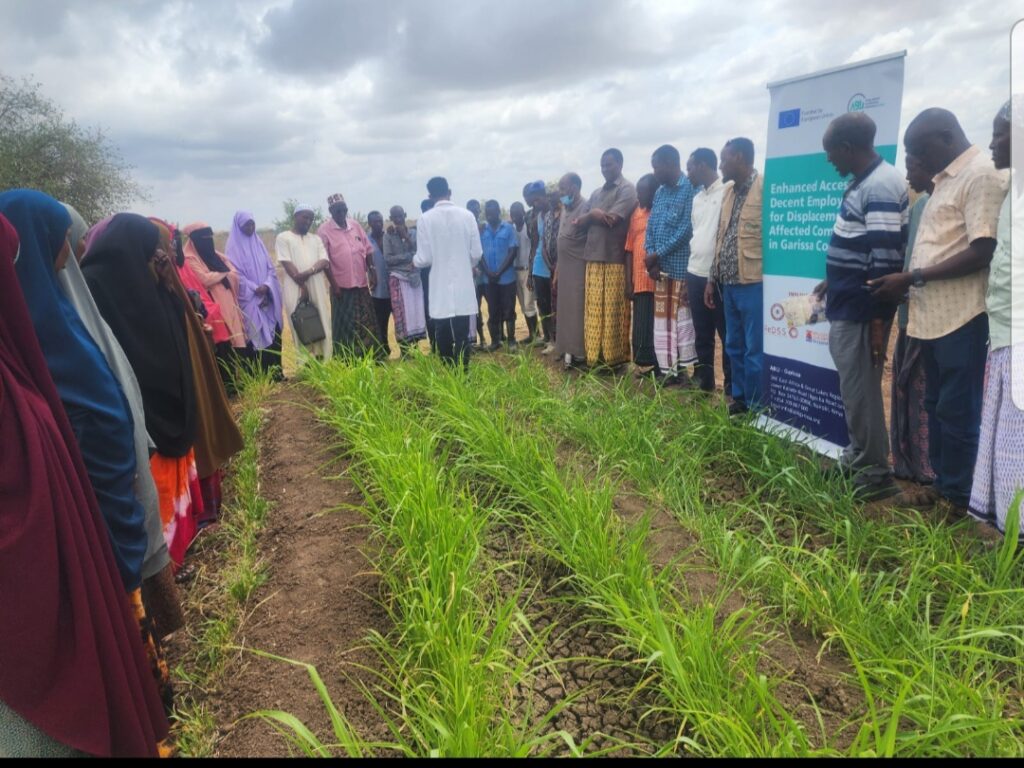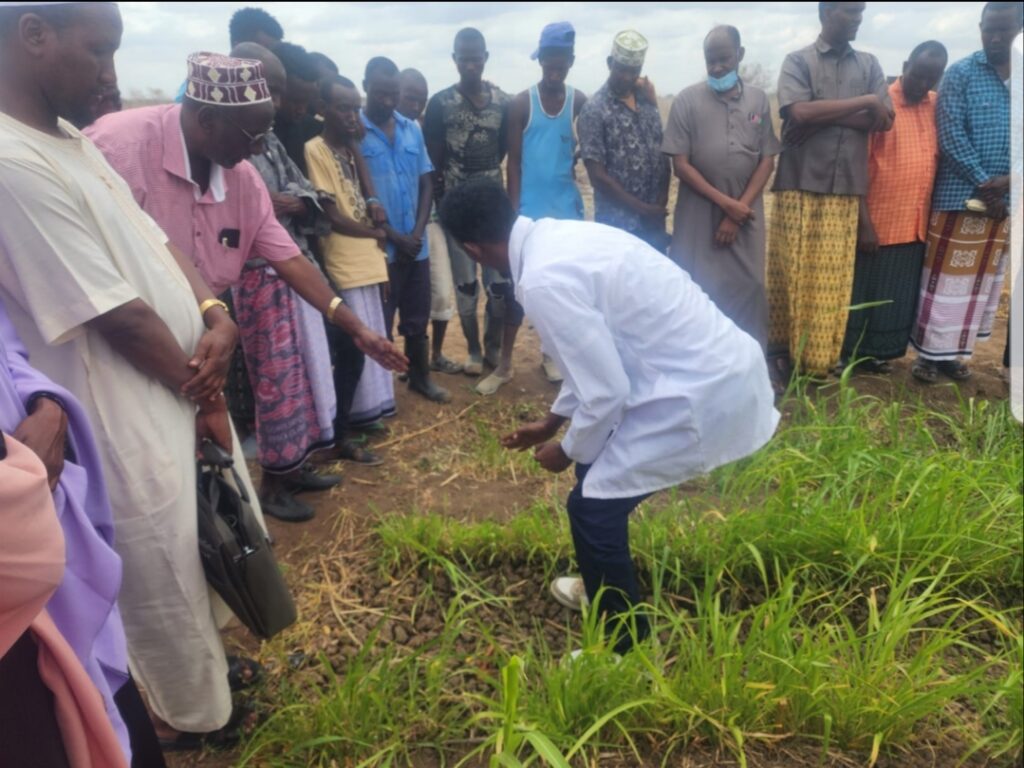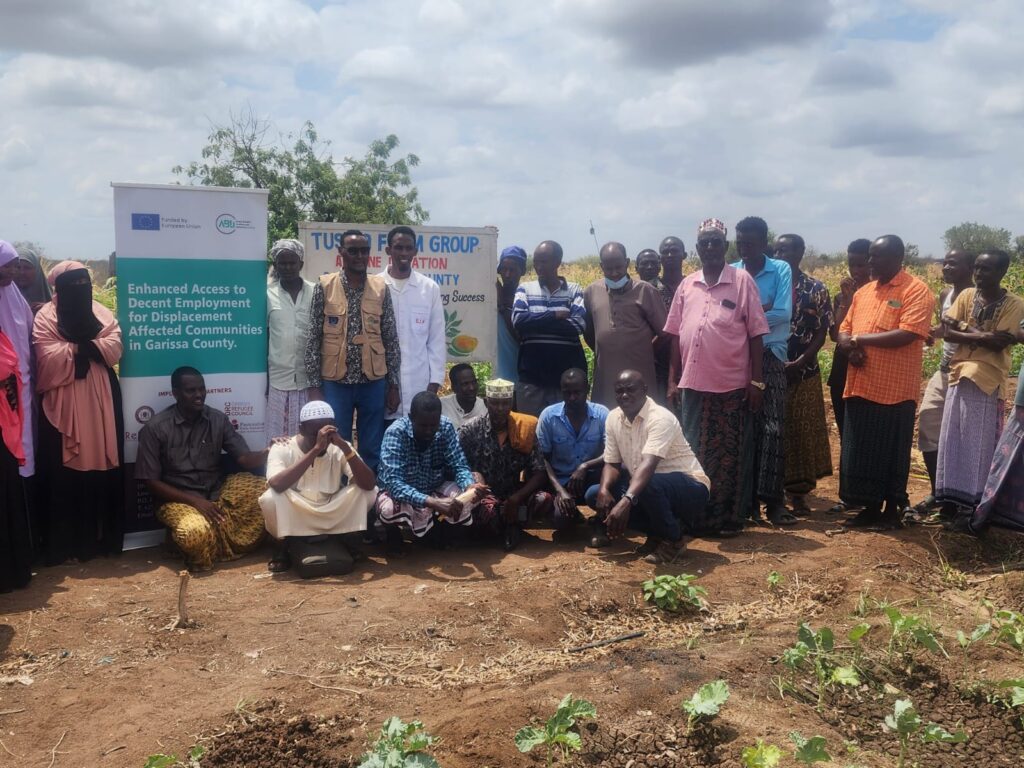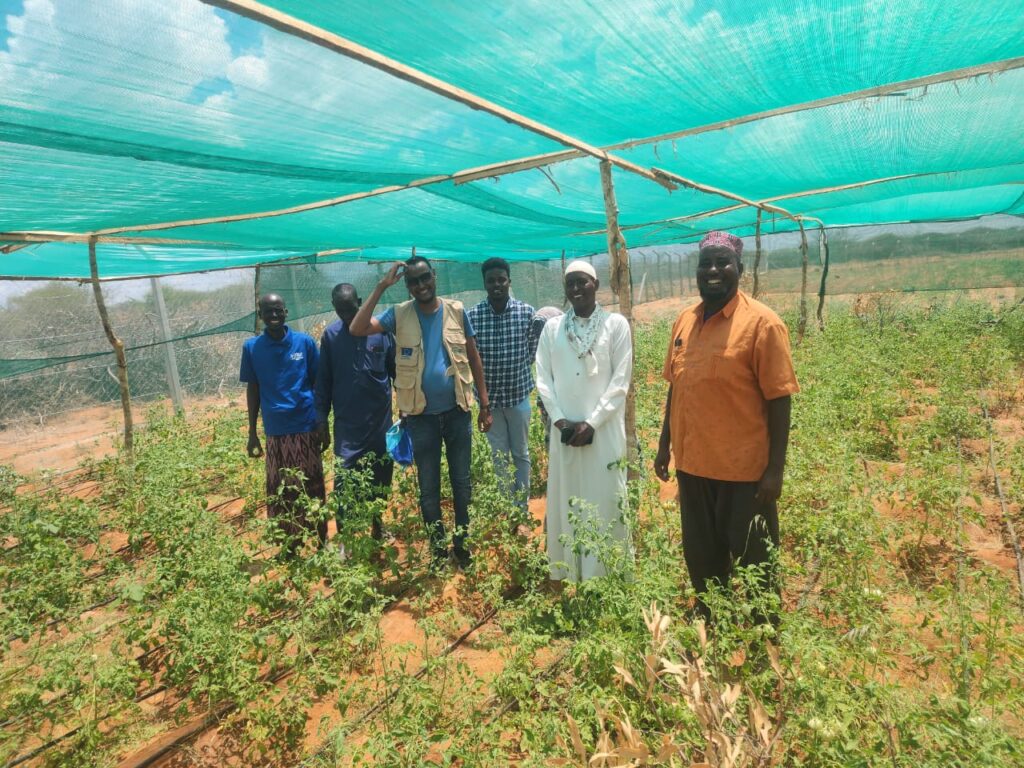Under the ABLI-G project, local capacity was strengthened through the identification and training of 30 lead farmers as Trainers of Trainers (ToTs) in sustainable agriculture. These ToTs, along with 200 additional farmers, participated in targeted 2-day trainings on dairy goat farming, beekeeping, poultry farming, and fodder production. Facilitated by county government experts, the sessions combined technical instruction with practical demonstrations, covering key topics such as animal husbandry, disease management, and climate-resilient practices. The initiative enhanced community knowledge, improved livelihoods, and promoted sustainable agricultural practices aligned with local policies.
These efforts not only strengthen livelihoods but also contribute to long-term community resilience by promoting self-reliance and reducing dependence on humanitarian aid. By integrating climate-smart practices and supporting locally appropriate value chains, the ABLI 2 project continues to empower households in Dadaab to sustainably manage natural resources and improve their economic well-being.



